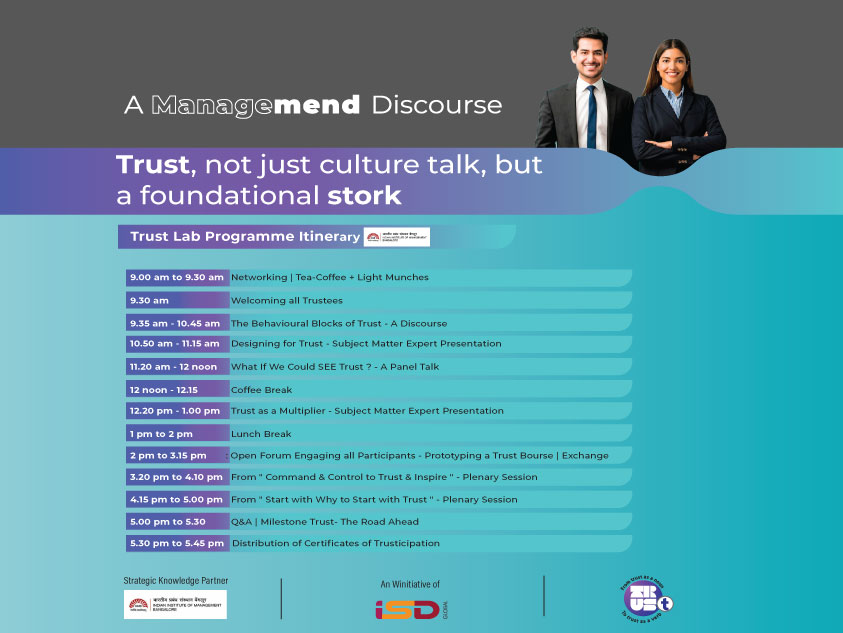How many times have you seen a leader embrace decline within their company with positive and inspirational energy?
It’s not a common occurrence. After all, through our traditional view of leadership, only a weak CEO would enter a period of decline in this way. Good leadership is all about growth, strength and power. Isn’t it?
I’m a senior fellow in management practice at Oxford’s Saïd Business School and I believe we should flip this thinking on its head. Imagine this scenario: A leader of an oil company has a dial in front of them, and on that dial they could speed up the decline of fossil fuels in favor of allocating more capital to renewable energy.
If they turned that dial, would you consider them a weak leader?
Or if a CEO of a food manufacturing company used the dial to speed up the decline of excess sugar and salt in the food products it supplies to grocery stores—without being pressured by regulators. Is that weak leadership?
Or if the leader of a bottled water company turned the dial to accelerate the decline of unsustainable plastic bottles. Is that a weak leader?
This was the hypothetical scenario at the core of a TEDx Talk I did eight years ago in which I challenged the narrative that effective leadership is all about growth.
My point was that the traditional model for business performance—simply delivering profitable growth and returns to shareholders—is increasingly irrelevant when taken on its own. Just as much importance needs to be placed on how a leader delivers for society: especially by fulfilling environmental goals. By 2050, we will know if we have won the race to net zero and businesses can play a key role in that by accelerating the decline of practices which harm the natural environment.
In the 20th century, there was almost unlimited consumption of natural resources. We’ve finally realized we can’t continue to consume at the rate we’re consuming. That means certain industries are in decline, and one could argue that the faster they decline, the better. It means more capital becomes available, and there is more space for innovation, for what will eventually replace those industries. If we hold onto them for too long, we won’t get to a better future any time soon. And therefore some companies will fail to transition to the next wave of growth and thus lose their place as leaders within their industry. A classic example is oil and gas.
And yet in 2015, when I did that talk, I would not have anticipated being in a world in 2023 where, for example, oil companies are still spending more on fossil fuels than they are on renewables. Where nearly 500 billion plastic bottles are used worldwide every year. I would have thought things would have changed quicker, and in many cases, it still feels like profits are being pursued at the expense of sustainable business models of the future. It’s been three steps forward and two steps back.
The disappointing thing is many of these companies have proper means, and deep technological capability, to effect change. The capacity needed to build and maintain an oil and gas platform, for example, is incredible. If that was decelerated at a quicker pace in favor of deploying more resources to renewables, it’s difficult to argue those companies’ long-term business models would be in a better position.
But I also feel there is good reason to feel positive about the future when I assess the new archetype of leadership that is emerging. I have seen this on my Leadership 2050 podcast, which I host as part of my work with the University of Oxford’s Saïd Business School.
One leader I interviewed for the latest series sticks out in my mind. Pinar Akiskalioglu is founder of Takk, an “essentials only” personal care brand that urges customers to pick only the bathroom items they need as part of its mission to fight waste. It’s quite the contrast with other retailers that, when you buy a certain product, bombard you with emails encouraging you to buy more.
What Akiskalioglu has created is a contract with the consumer saying: “We won’t sell you unnecessary stuff.” She is actively encouraging the decline of overconsumption as a cornerstone of her business model. At the same time, she has created a loyal customer base. She’s achieving growth by telling people to buy less.
It’s a lesson to those organizations whose business models are creaking. Unless they go through major reinvention, they are going to continue to struggle, and what they are starting to see is what the new world looks like. It is by embracing the death of the negative aspects of their operations that they can start to transcend these challenges. And therein lies the power of enabling—and sometimes even embracing—decline.
ENDS
—
This article first appeared https://www.fastcompany.com
Seeking to build and grow your brand using the force of consumer insight, strategic foresight, creative disruption and technology prowess? Talk to us at +971 50 6254340 or engage@groupisd.com or visit www.groupisd.com/story



